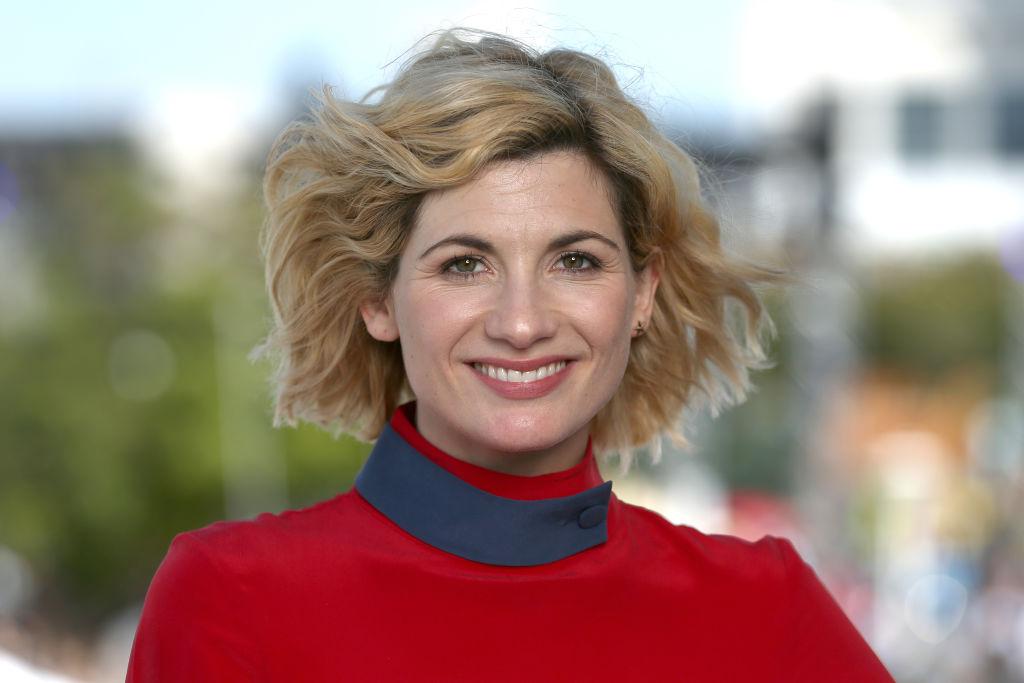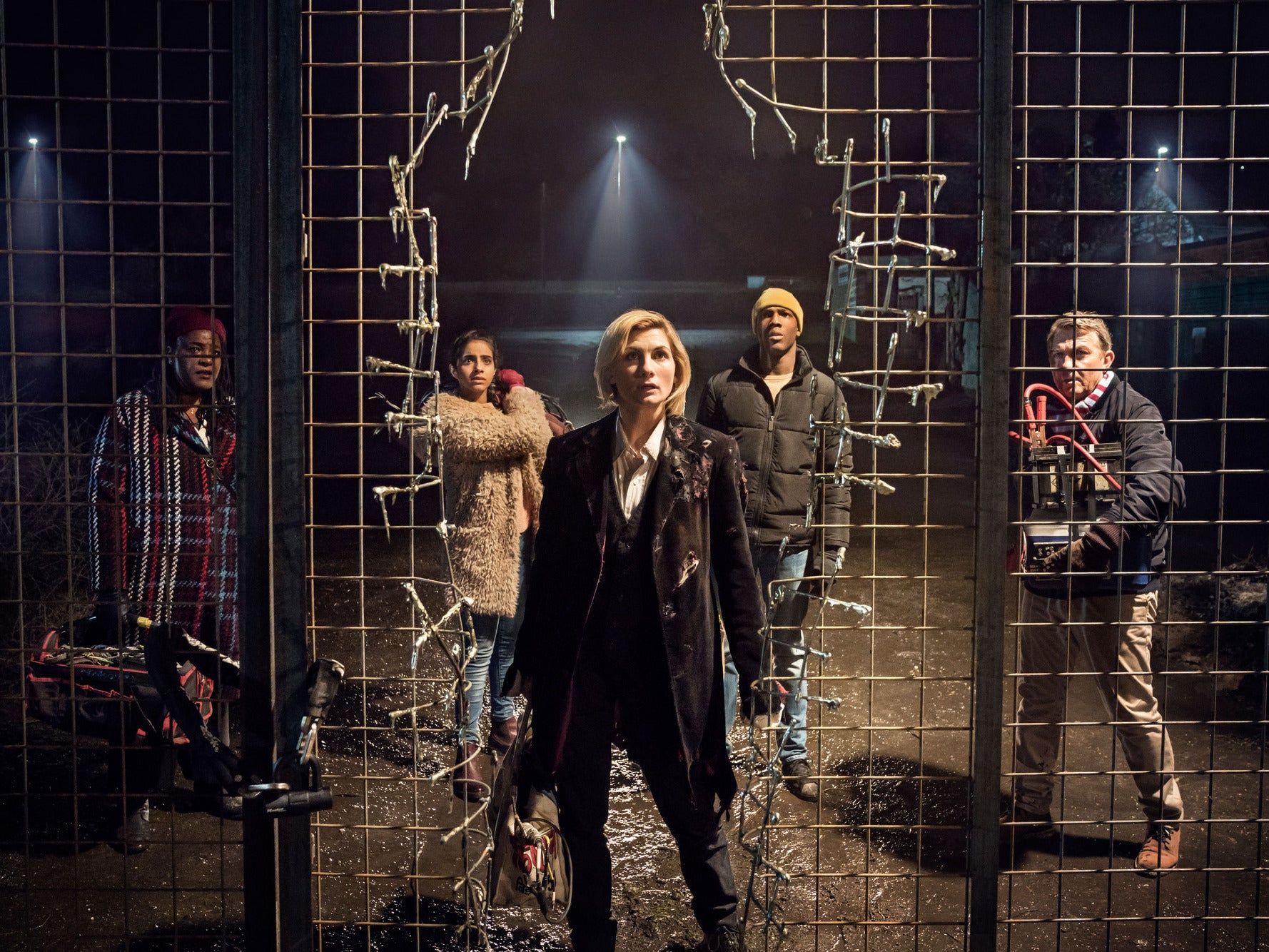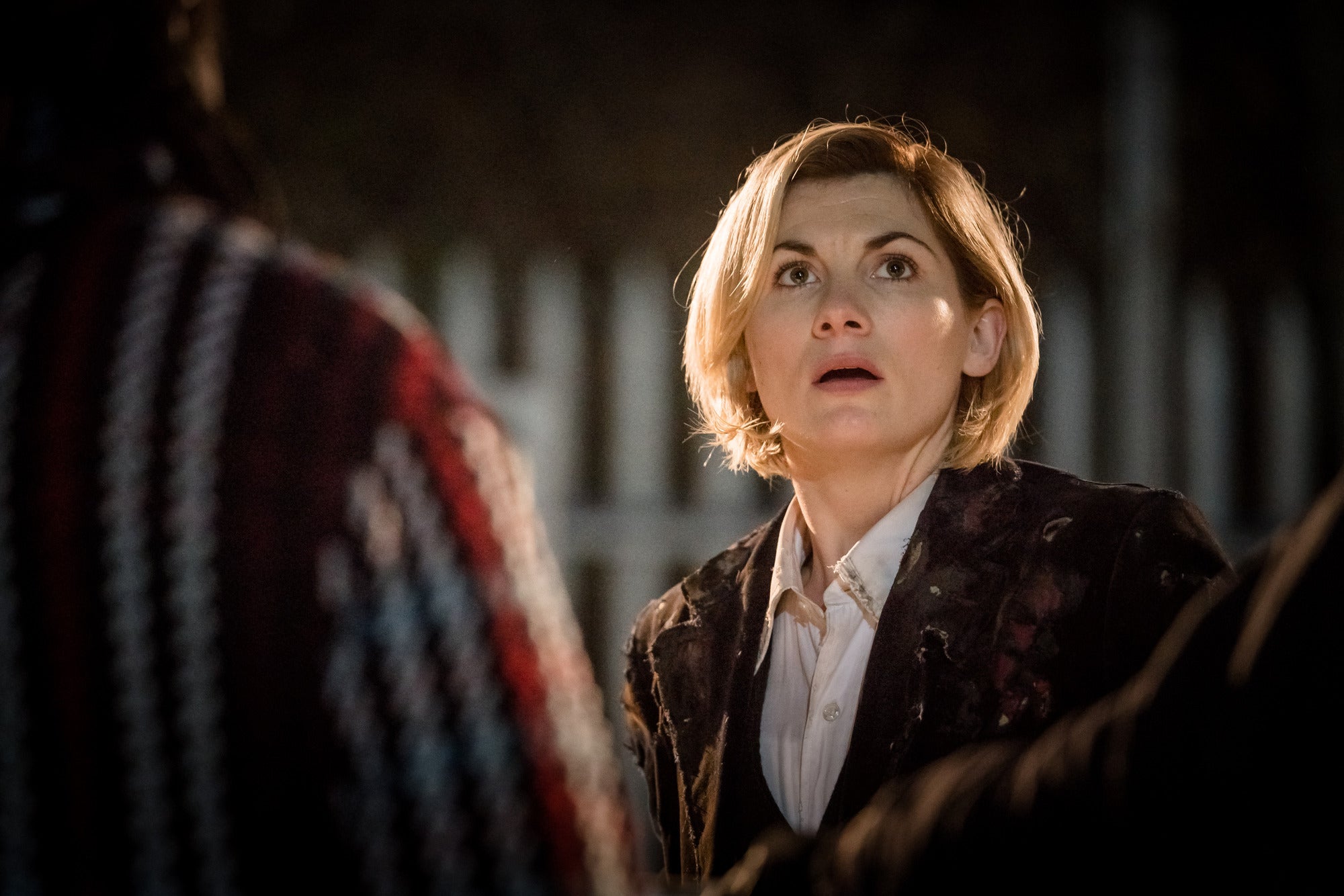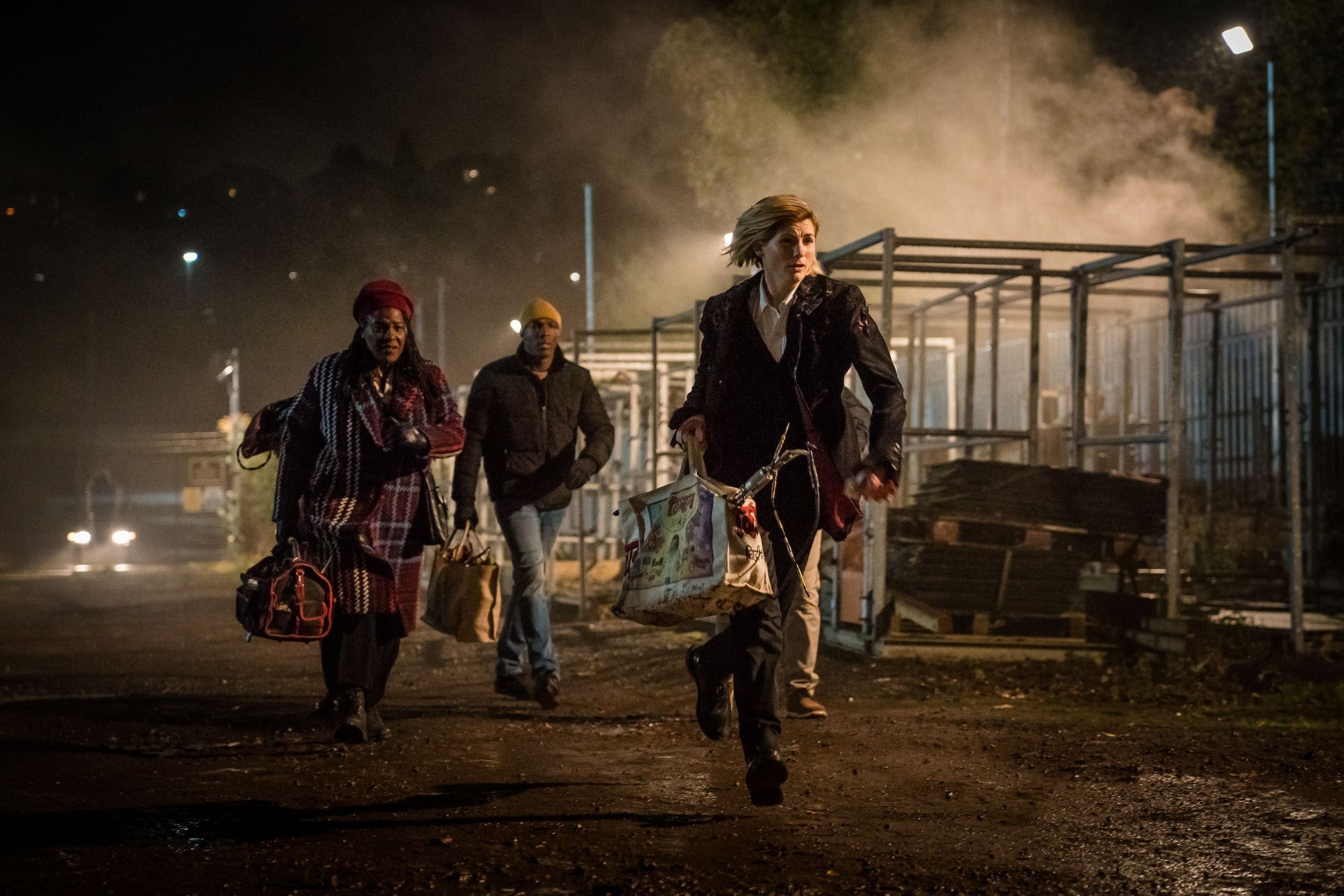Jodie Whittaker brings ‘Doctor Who’ its biggest change in 55 years
Despite knowing there would be an inevitable backlash, Whittaker has risen to the challenge of portraying the 13th Doctor and changed the iconic series forever, says Dave Itzkoff

Your support helps us to tell the story
From reproductive rights to climate change to Big Tech, The Independent is on the ground when the story is developing. Whether it's investigating the financials of Elon Musk's pro-Trump PAC or producing our latest documentary, 'The A Word', which shines a light on the American women fighting for reproductive rights, we know how important it is to parse out the facts from the messaging.
At such a critical moment in US history, we need reporters on the ground. Your donation allows us to keep sending journalists to speak to both sides of the story.
The Independent is trusted by Americans across the entire political spectrum. And unlike many other quality news outlets, we choose not to lock Americans out of our reporting and analysis with paywalls. We believe quality journalism should be available to everyone, paid for by those who can afford it.
Your support makes all the difference.When Jodie Whittaker got the news some months ago that she had been cast as the protagonist of Doctor Who, she went through a range of overwhelmed reactions. She cried; she caught her breath; she excitedly squeezed the knee of a colleague sitting next to her.
To be told that she would inherit the role of the Doctor, a time-travelling, space-faring adventurer who is perhaps one of the most recognisable heroes in science fiction, Whittaker says: “It wasn’t part of my mindset, as an actor, that it was possible.”
For Whittaker, 36, who until now was best known for her work on the crime drama Broadchurch, the casting decision was life-altering, as it would be for any performer – a guarantee that, when it was announced to the public, she would become instantly familiar to a global audience of millions.
In her case, however, there is an added, inescapable distinction: In the 55-year history of Doctor Who, during which 12 other actors have officially portrayed the Doctor, Whittaker is the first woman.
It's clear that Whittaker and her colleagues want to celebrate the show’s inclusivity without chiding the wider genre for a historical lack of representation, and also highlight how they have made the series more contemporary and more diverse – behind the camera as well as in front of it – while emphasising that its fundamental principles haven’t changed.
This is no easy feat for the series, which is accustomed to a certain scrutiny when it replaces its lead actor every few years. The series is also a prominent entertainment property in a field where efforts to diversify are often attacked by a vocal subset of fans.
Despite these challenges, Whittaker says it was a role she could hardly resist. “There’s no other job like it”, she says. “And I certainly can’t be typecast as it.”
A London-based actor who was raised in West Yorkshire, Whittaker gained early attention for her roles in films like Venus (2006), opposite Peter O’Toole, and Attack the Block (2011), with John Boyega, before her breakthrough playing the mourning mother of a murder victim in three seasons of Broadchurch.

That proved crucial when Steven Moffat, who had been the show runner of Doctor Who since 2009, decided to leave the series, and the BBC turned to Chris Chibnall, the creator of Broadchurch, as his possible successor.

Watch Apple TV+ free for 7 days
New subscribers only. £8.99/mo. after free trial. Plan auto-renews until cancelled

Watch Apple TV+ free for 7 days
New subscribers only. £8.99/mo. after free trial. Plan auto-renews until cancelled
As he considered the opportunity, Chibnall recalls: “I made a list of pros and cons, and there were 10 cons and one pro – it’s Doctor Who. And the moment I start thinking, oh, we could do that story and have those characters, the show started talking to me.”
Chibnall, who had previously written several Doctor Who episodes, says he wanted his incarnation of the series to be “incredibly emotional,” with “stories that resonate with the world we’re living in now, and I wanted it to be the most accessible, inclusive, diverse season of Doctor Who that the show has ever done.”
When it became clear that Peter Capaldi, who became the Doctor in 2013, was also leaving the show, Chibnall says he had one further stipulation: “I was seeking a female Doctor. I was really clear.”
Although actors like Helen Mirren, Judi Dench and Tilda Swinton had been mentioned as candidates for the role in the past, these rumours never yielded substantive results. A change was long overdue, Chibnall says, for a character with the ability to shape-shift and regenerate in new forms.
Whittaker, who he believed could handle the character’s emotional complexity and antic humour, was among his top choices. “The precision of what she does is extraordinary, and her instincts are just so right,” Chibnall says of Whittaker, adding that she is “incredibly funny.”

Whittaker grew up on beloved 1980s genre films like Back to the Future, The Goonies and E.T. the Extra-Terrestrial, never discouraged that there were so few female protagonists to identify with.
But when it came to Doctor Who, she says, “The thought that you – that I – could be in it never crossed my mind”. When Chibnall asked her to consider auditioning for him, Whittaker says: “I was like: ‘Can I play a monster with loads of prosthetics?’” After Chibnall explained that he wanted her to try out for the starring role, Whittaker says, she answered, “If I don’t get it, can I still play a monster?”
Following an audition process in which other women were also considered – Chibnall has not says who they were – the BBC revealed the selection of Whittaker in a commercial shown after the Wimbledon men’s final in July 2017.
Chibnall says he expected that it would take some time for the Doctor Who fan base to embrace this choice. “I thought it would take people a year,” he says. “We were like: ‘OK, helmets on. Hunker down.’”
In fact, the announcement of Whittaker was hailed quickly and widely but not universally. A disparaging hashtag, #NotMyDoctor, circulated on Twitter and Instagram, and the BBC received complaints from viewers, prompting the broadcaster to issue a statement that affirmed that: “The Doctor is an alien from the planet Gallifrey, and it has been established in the show that time lords can switch gender,” adding that Whittaker “is destined to be an utterly iconic Doctor.”
Peter Davison, who played the Doctor in the early 1980s, said at a 2017 Comic-Con appearance that he felt “a bit sad” at “the loss of a role model for boys,” while Colin Baker, his heir to the role, said those remarks were “absolute rubbish”, adding: “You don’t have to be of a gender for someone to be a role model.”
Whittaker says she had largely been spared the brunt of this debate because she is not on social media. If an online critic has a premature assessment of her, she says: “It’s not a fact — it’s an opinion. I have no issue with someone having a different opinion from me. I don’t necessarily want to have my last meal with them.”

But what if people are claiming that she doesn’t deserve the role or was given it only because she is a woman? “I know I got the role on the merits,” Whittaker says more sternly. “I didn’t get handed it. I don’t play a gender.”
David Tennant, who was one of Whittaker’s co-stars on Broadchurch and who played the Doctor from 2005 to 2010, says that a certain amount of backlash was to be expected from Doctor Who fans.
Viewers form attachments to “their version” of the Doctor, Tennant says: “the one that they first knew, and there’s always a resistance when their lead actor changes.”
But sure enough, they come to embrace other actors, too: “People who have loved a Doctor before and feel like they can never fall in love again, do so with alarming promiscuity,” he says. “It’s unfortunate if that gets made into a gender issue. That’s people just not seeing the woods for the trees.”
Whittaker says that if some portion of the Doctor Who audience was disappointed by the departure of Capaldi, her predecessor, that reflected well on the series.
Recalling her experience filming the scene in which Capaldi transforms into her, she says: “I’m in Peter’s costume. I’m literally in his shoes. If someone is devastated at the loss of him, that’s brilliant, because it just means the show is loved. If the fact that I’m a woman is an issue, that’s their issue. I can’t even begin to debate that.”
Throughout Doctor Who, its newest recruits say they feel invigorated by the changes taking place there and are ready to carry the show into its next era.
When the BBC announced the series’s creative staff in August, two of its five new writers were women, and two were people of colour; two of its four directors were women, and one was a person of colour.
Mandip Gill, who joins the show this season as Yasmin Khan, a young companion to the Doctor, says she also assumed that a role on Doctor Who was an unattainable goal. Being a woman of South Asian ancestry, she says: “I never really thought it was open to me.”
Even when she was told that producers specifically wanted a South Asian actor who spoke with a Northern British accent, Gill says she was skeptical: “Have they heard me?” she says, playing up her Leeds dialect. “They don’t want me in a Marvel film with my accent, let’s be honest.”
Several months ago, Gill was in Wales, shooting an episode of the medical drama Casualty in the same studios where Doctor Who is produced. When she went to get something to eat, she says, she was given a specific prohibition by a production assistant.
“We walked down the corridor,” she recalls, “and the runner said to me: ‘That’s Doctor Who. You can’t go in there.’ I just wanted the canteen!”
Now that she has spent almost a year making Doctor Who, Gill says she looks back on this incident with different eyes. “Cut to nine months later – I’m walking down the same corridor,” she says proudly. “And I’m walking through the door.”
Series 11 of Doctor Who is on Sundays on BBC1
© New York Times
Join our commenting forum
Join thought-provoking conversations, follow other Independent readers and see their replies
Comments